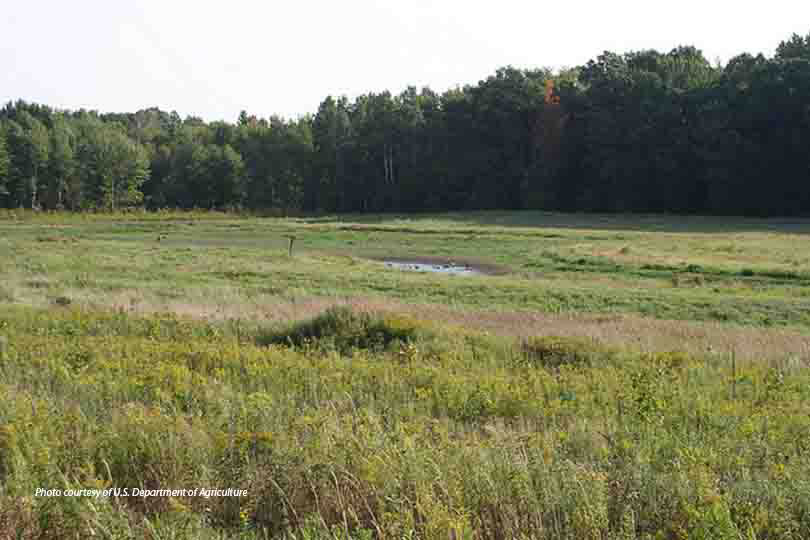Applications for the Agricultural Conservation Easement Program (ACEP) are now being accepted.
ACEP, reauthorized through the 2018 Farm Bill, funds easements for agricultural lands and wetlands. The program is administered by the U.S. Department of Agriculture’s Natural Resources Conservation Service (NRCS).
Approved agricultural easements prevent productive working lands from being converted to non-agricultural uses and maximize protection of land devoted to food production. Cropland, rangeland, grassland, pastureland and nonindustrial private forestland are eligible.
Wetland reserve easements restore and enhance wetlands and improve habitat. Eligible lands include farmed or converted wetlands that can be successfully and cost-effectively restored. Applications are currently being accepted for wetlands reserve easements and will be rated according to the easement’s potential for protecting and enhancing habitat for migratory birds, fish and other wildlife.
“The 2018 Farm Bill provides tremendous opportunities for even more people to get involved in conserving and protecting our working lands and wetlands,” NRCS Texas State Conservationist Salvador Salinas said. “We encourage Indian tribes, state and local governments, non-governmental organizations and private landowners to contact their local NRCS office to find out how to apply.”
Applications for a Wetland Reserve Easement (WRE) and an Agricultural Land Easement (ALE) through the ACEP are accepted on a continual basis. For fiscal year 2019, Texas will evaluate all applications received by April 30. Applications received after April 30 will be held for funding consideration in fiscal year 2020.
Since 1995, NRCS conservation easement programs have protected over 128,000 acres of restored wetlands and working agricultural lands in Texas.
Learn more about ACEP and other Farm Bill programs at http://www.farmers.gov.
To get started with NRCS, visit your local USDA Service Center or www.nrcs.usda.gov/GetStarted. Learn more about the Farm Bill at www.nrcs.usda.gov/FarmBill.

